Information and international current affairs
Work in the field of international information and also learn about today's main international issues
Official title
Enrolment open

From 6 pm to 9 pm
Blanquerna-URL - Plaça Joan Coromines. 08001 Barcelona
School of Communication and International Relations
Journalists and communication professionals interested in expanding their knowledge of international affairs. Graduates in International Relations interested in acquiring skills in journalism and communication. Graduates from any field who want to acquire knowledge of the international situation, journalistic language and communication techniques in the digital and hypermedia environment.
Work in the field of international information and also learn about today's main international issues
Become familiar with the basic theoretical principles of international relations in the 21st century
Learn the language of journalism in digital and analog environments
A guaranteed future career.
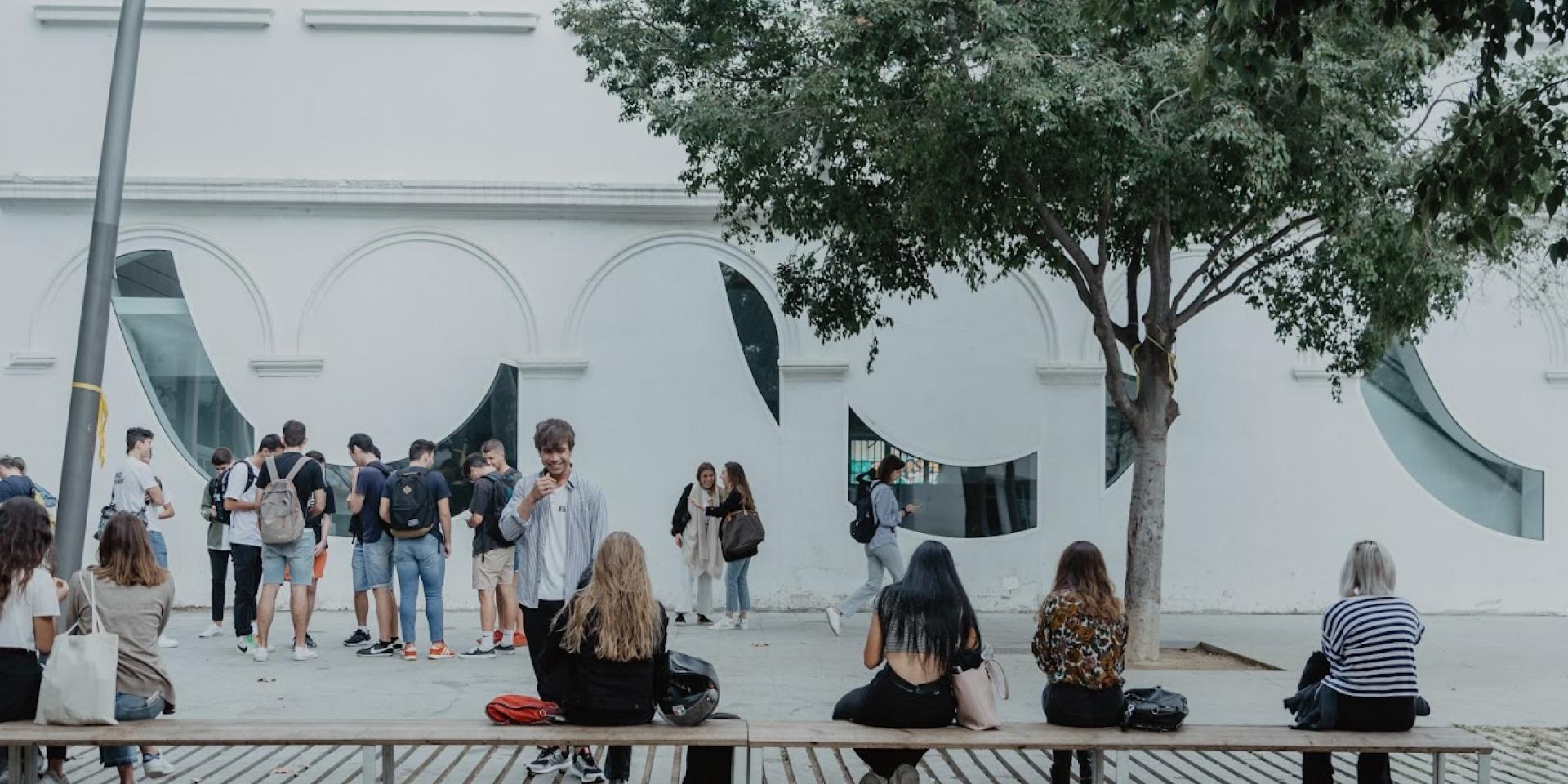
employment rate (School overall, AQU data)
agreements with companies (general School data)
agreements with international universities (general School data)

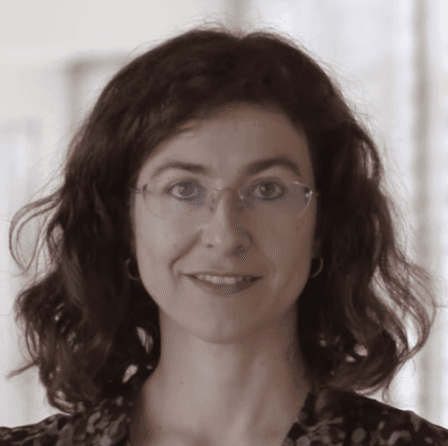
News
November 30, 2022
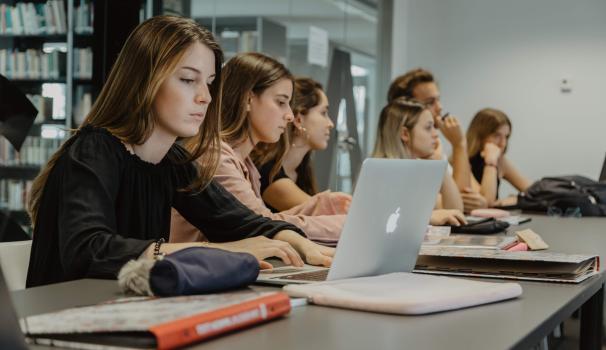
June 28, 2022
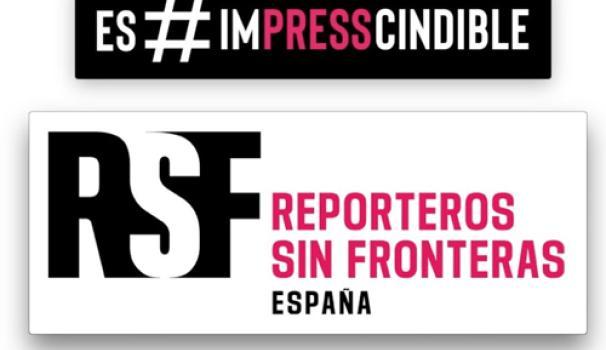
June 29, 2021
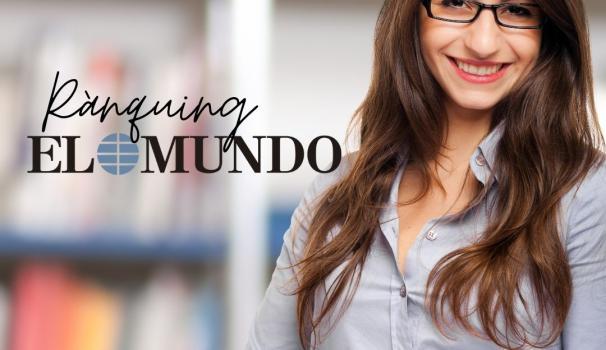
June 29, 2021
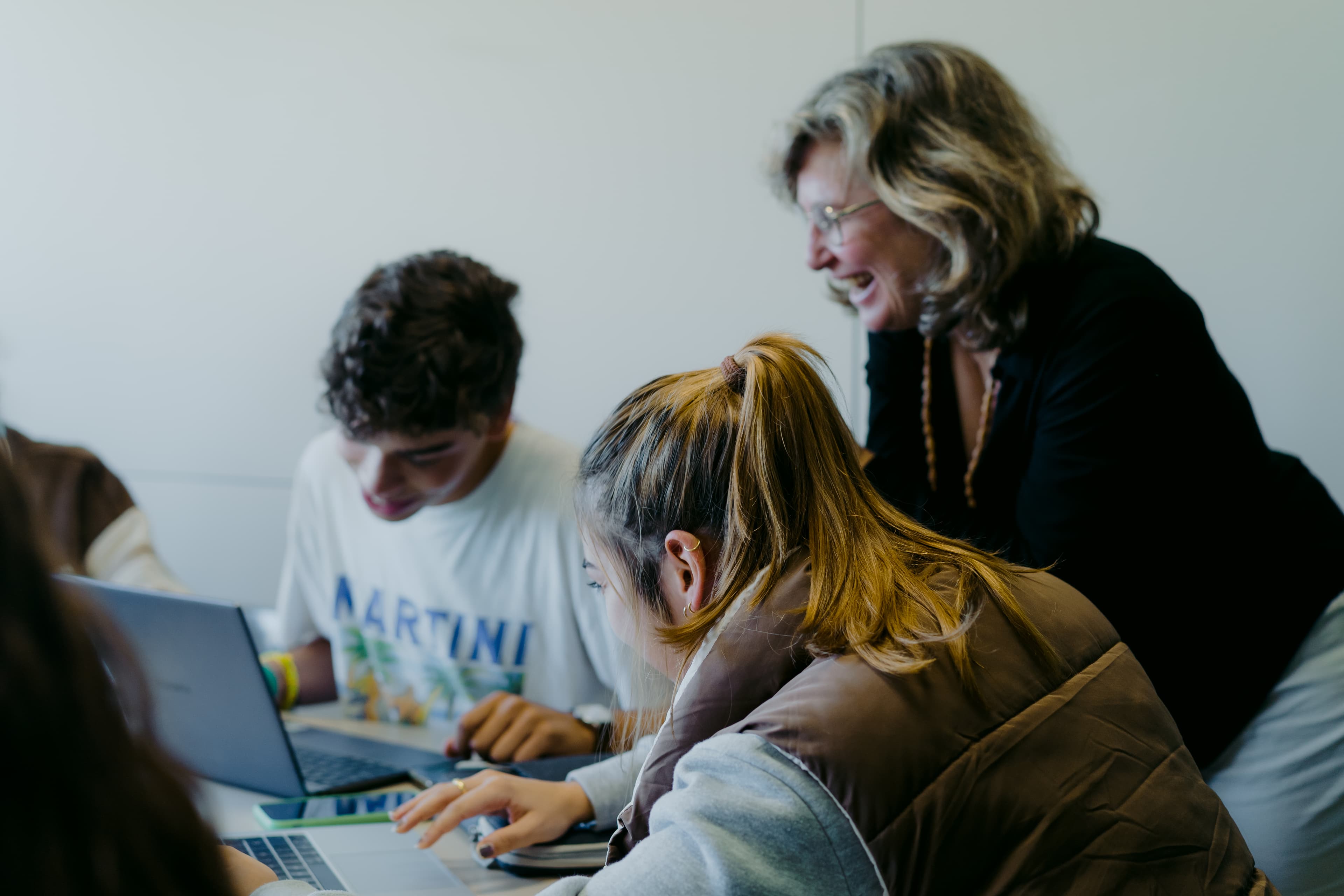
Students have four options when selecting the 16 credits for the elective subjects:
1- Internships and elective content specific to the master program.
2- Internships and advanced research method elective.
3- Internships and elective content from another master program.
4- Advanced research method elective and three 4-credit electives (non-internship option)
| First | |||||||
| Master's degree project | 12 | ||||||
| Compulsory | 32 | ||||||
| Optional | 16 | ||||||
| Total | 60 |
Studies can be paid in installments and without any interest. At the time of enrollment, 50% of the total cost of the enrolled credits is paid. The remaining 50% is split into nine monthly installments (from October to June) payable by direct debit.
*Els descomptes són aplicables en Màsters Universitaris, Màsters de Formació Permanent i Títols Propis, i no són acumulables: només es pot aplicar 1 dels descomptes.
Alumni-Blanquerna de qualsevol pla d’estudis associat a una matrícula de pagament prèvia. Només s’ofereix una vegada per a cada tipus de títol diferent on l’alumni es vulgui matricular.
Empreses amb les quals existeix un conveni de col·laboració formal, sigui de pràctiques o de qualsevol altre model d’associació.
Professorat, PAS, Estudiants i Alumni d’institucions universitàries amb les quals hi hagi conveni d’estudis/intercanvis, per exemple, Universitat Ramon Llull o Emerson College.
Amb tots els col·legis professionals amb qui existeixi conveni de col·laboració vigent. S’ha d’acreditar el fet d’estar col·legiat.
The master degree in International Journalism opens up a very diverse range of job opportunities.
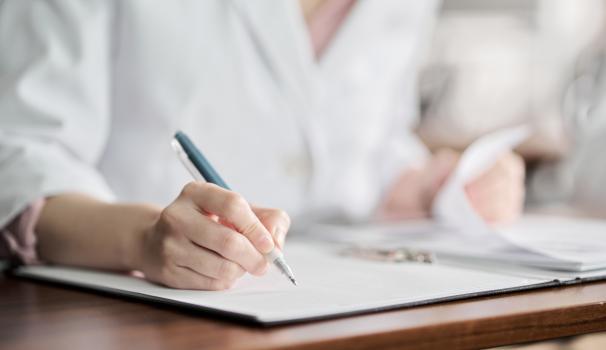
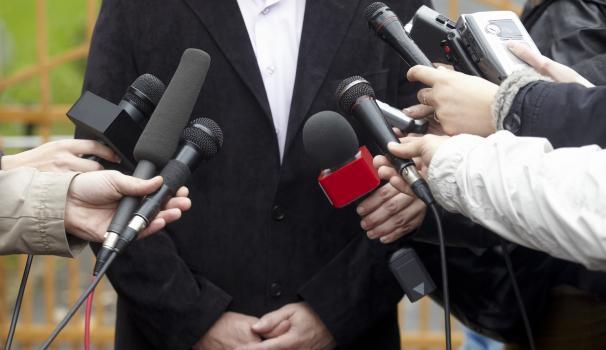


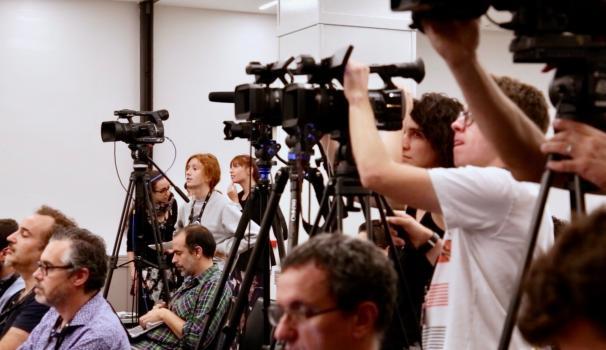


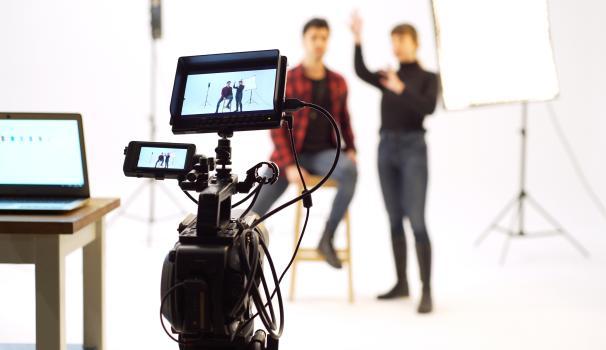
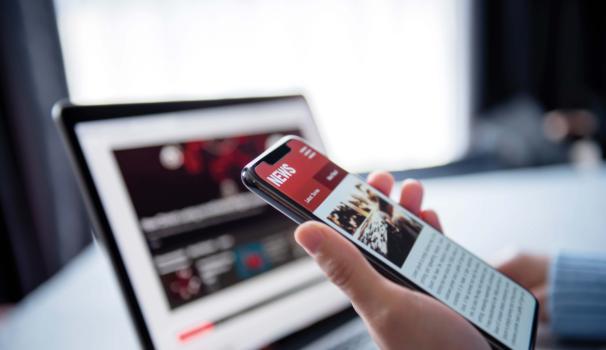
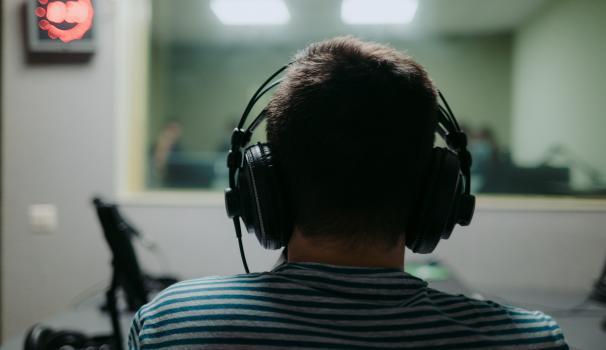


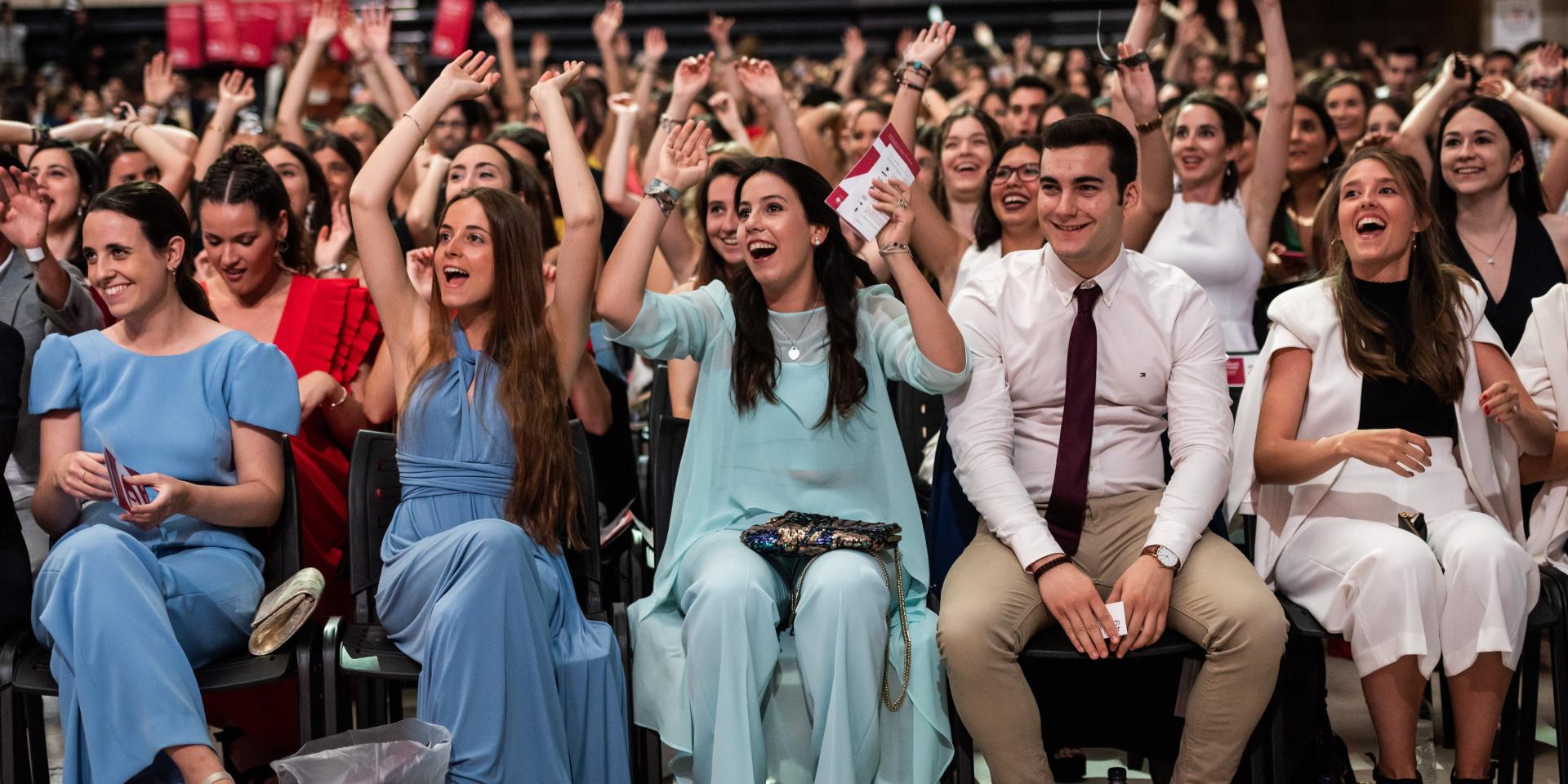
Our work doesn't finish the moment you graduate. The Alumni department will support you to enable us to achieve an employment rate of 90% of students in the first year after graduation
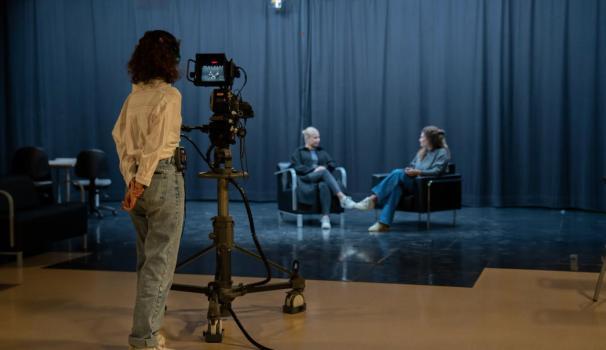
In front of or behind the camera? You can work on any of these skills in the school's two television studios. In addition to the cameras, you can learn how the production room, the lighting and the teleprompter work.

Whether it's broadcasting live or recording a podcast, you'll find all the equipment you need to do radio. The school has two radio studios and three individual workspaces equipped with microphones and telephones for external interviews.
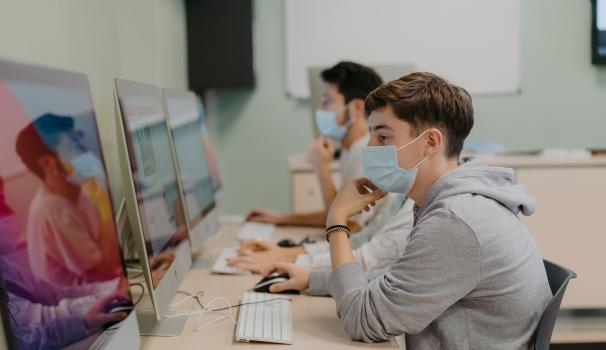
Applying content creation techniques to the web is essential to internalizing knowledge. Journalism, advertising and corporate communication have evolved into the digital environment.
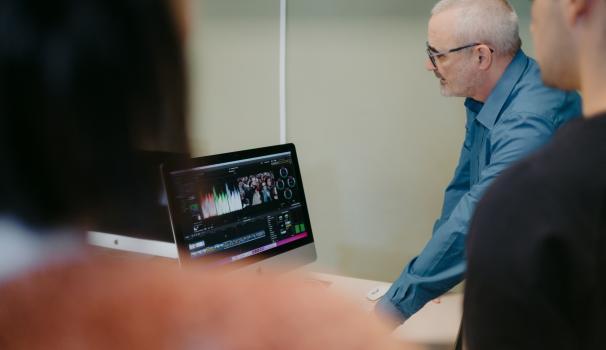
Available for both academic work and personal projects, you will find a total of 9 audio and video post-production rooms at the school, equipped with pioneering programs such as Photoshop, DaVinci Resolve, Final Cut Pro, Premiere Pro, After Effects and Audition.
For any communication project, the multimedia laboratory is the perfect room to start making a creative idea or initiative a reality. The room allows reservations for team meetings.
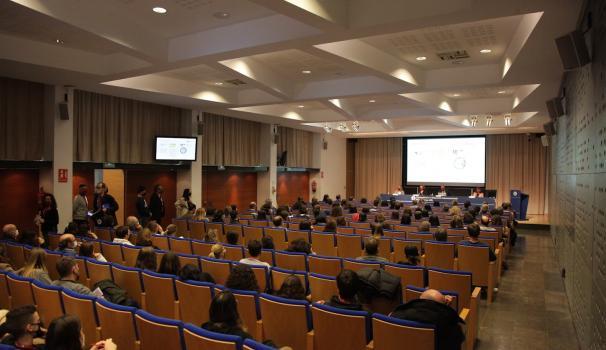
The school has an auditorium that can be used for celebrations, academic events, conferences or activities. In addition to the school's events, the space hosts other occasions that require ample space.
If you have a job or just need a computer, you can go to the computer classrooms or workspaces and use the Macs we have at your disposal.
Going into the world of work having been able to use professional equipment is essential. That's why we provide you with cameras that are used in the Audiovisual Communication and Journalism sectors so that you can learn with professional teams.
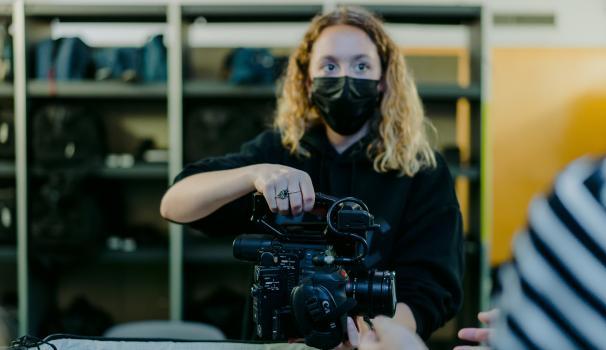
You have a wide range of accessories for professional cameras to get the best results in filming. Remember that you can use it for both personal and academic projects, always making the relevant reservation in advance.
If you need a quiet space to study or to do individual and group work, come to the library! Each school has its own library with computers, workrooms, reading points and an extensive catalog of documents you can consult in both hard copy and digital format.
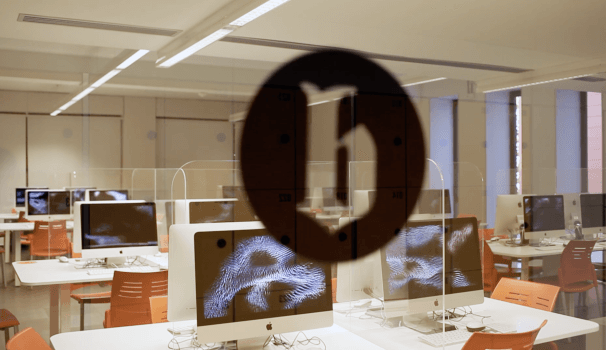
If you have a job or just need a computer, you can go to the computer classrooms or workspaces and use the Macs we have at your disposal.
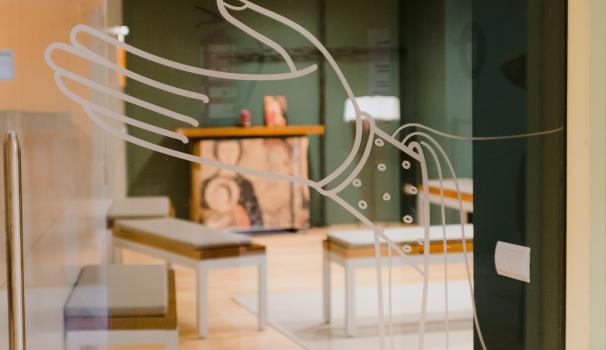
The chapel is the right place to find recollection, peace, to focus, to pray and to celebrate the Eucharist weekly and at important liturgical moments (Christmas, Ash Wednesday and Easter). The sacrament of reconciliation is also celebrated.

Using the latest equipment and audio-visual techniques is part of the learning process and enables students to enter the world of work with a broad knowledge of computer science. For this reason, the schools are equipped with audio-visual material for viewing and editing and a video library.
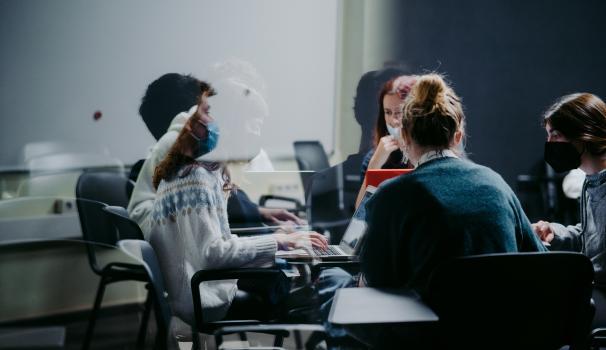
Ets estudiant o Alumni dels graus en Comunicació o del Grau en Relacions Internacionlals i tens un projecte que requereix equipament tecnològic i assessorament professional? Posem a la teva disposició el programa de mentoring, un servei per donar suport tecnològic i assessorament a aquests projectes.
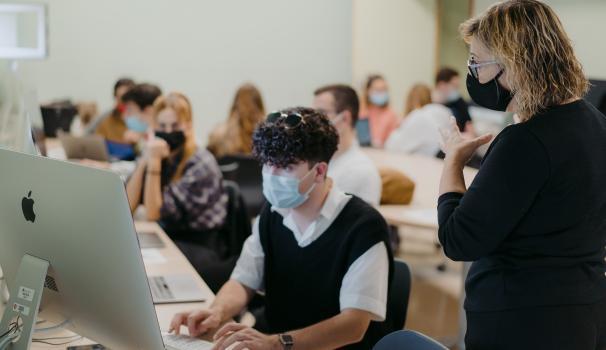
Our facilities include Mac computers, state-of-the-art software, WiFi network and printers to provide students with all the materials they need in their learning process.
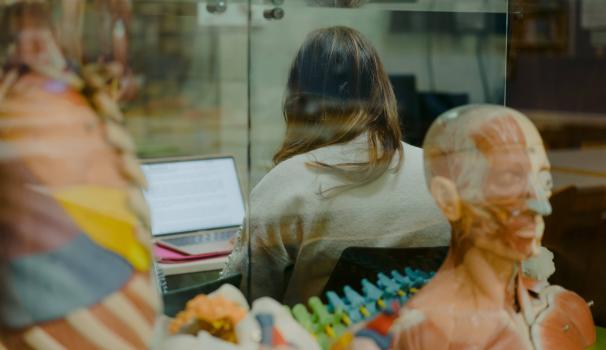
Ethics in the field of research is fundamental. The Faculty Research Institutes are supported by the opinions of the Research Ethics Committees (CER-URL) to evaluate and rate projects that have ethical implications.
If you are part of a research group, a professor or a PhD student and you need help with a project, you can ask for advice. This assistance includes analysis, guidance, help with applying for awards, and the financial management of projects.
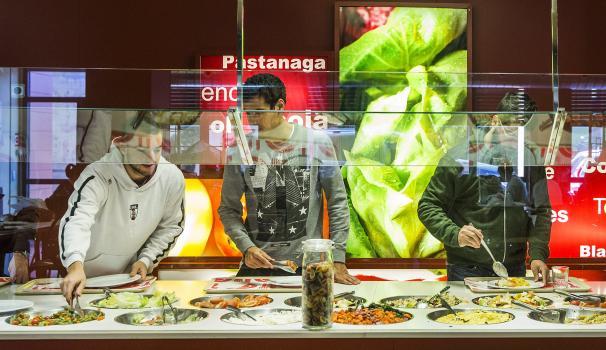
The nerve center of the quintessential faculties is the bar. There, teachers, students and staff meet throughout the day for breaks or meals.
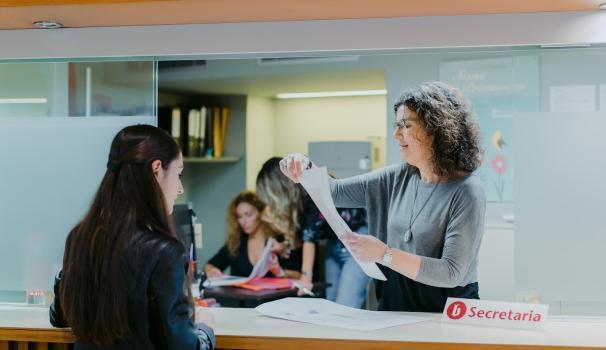
The Academic Secretaries of the Blanquerna faculties are the space for students to relate to the processes linked to the registration of official and own courses.

Would you like to receive information on pre-registration and admissions processes, scholarships and grants or validations? The SIOE is the service you need. Ask for all the information about any of these processes and discover all the possibilities at your fingertips.
Professional experience is a core part of our methodology. For this reason, we have a broad spectrum of internship agreements to meet the needs and preferences of all students. You will graduate having worked in your industry.
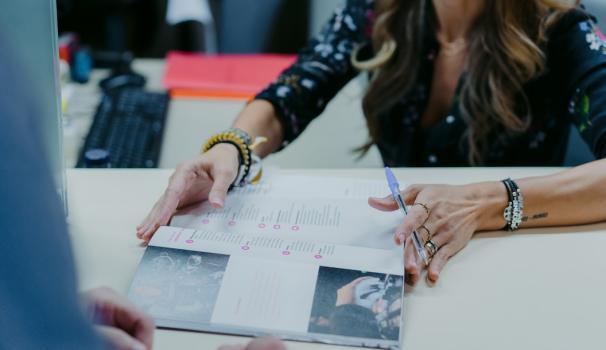
At Blanquerna, we put the future within everyone's reach thanks to our scholarships and grant service to start or continue studying at our schools. Financial aid is both internal and external to the university. You will find a wide range of possibilities.
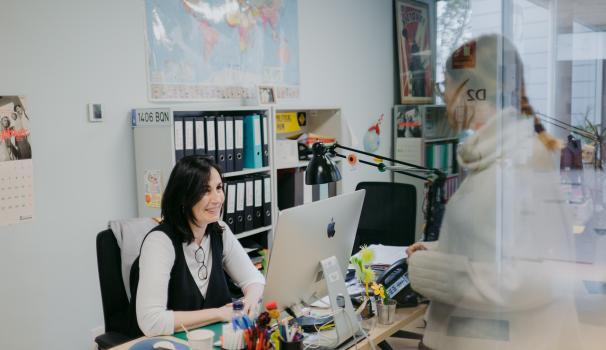
Going abroad is a unique opportunity to discover the plurality of the world. Aware of the importance of the internationalization of studies, we have established mobility agreements around the world.
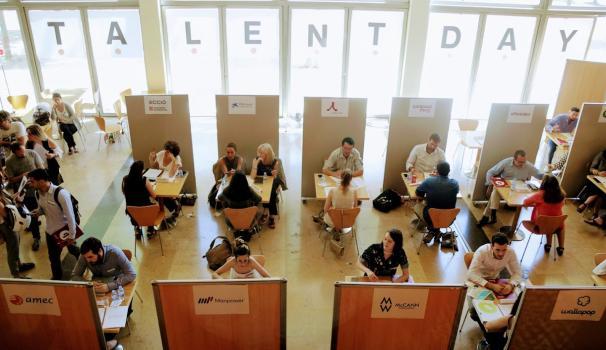
This service provides graduates with the necessary means so that they can actively participate in their professionalism and propose optimal candidates to organizations and companies looking for staff.

The leap into the world of work is always a challenge. For this reason, we provide a Job Bank for students and graduates. This service puts students in touch with companies and institutions looking for staff.
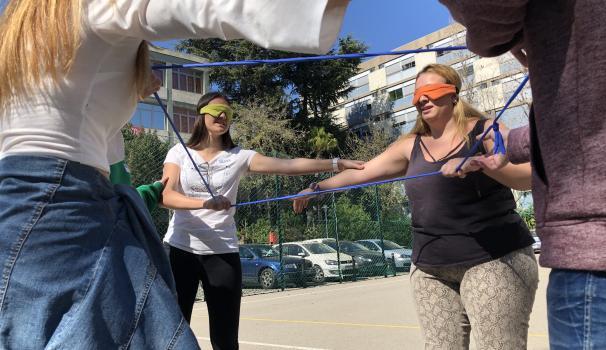
Solidarity and the struggle for human dignity are values that identify us. Solidarity Action is a volunteer program that our students can join to participate in projects in the Third and Fourth World.
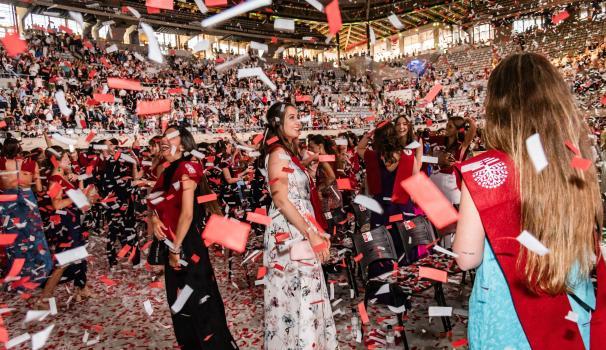
Studying in Blanquerna allows you to be part of our community. Being a college student opens the door to a lot of options for continuing your vocational training beyond your time in the classroom.
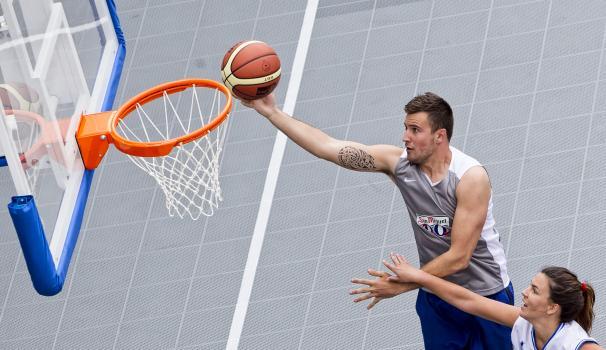
Want to represent the URL in college sports tournaments? You can find a wide range of possibilities for both individual and team sports. To be a student of Blanquerna, you will have a discount at the Can Caralleu and La Salle Sport & Fitness sports complexes.
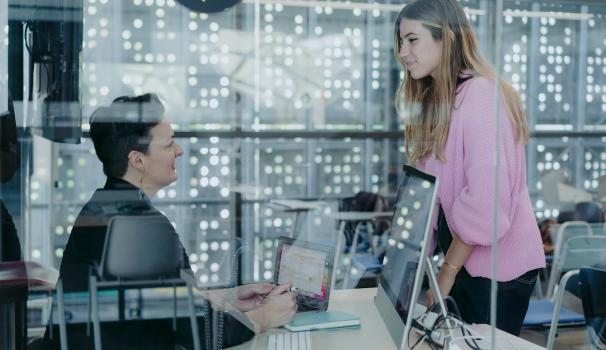
If you are in a difficult situation in the academic, personal or social field, you can request, free of charge, the personalized attention of the SOP. This is an interdisciplinary team of professionals who will guide you in dealing with the situation.
In the three Blanquerna faculties, you will find spaces for reflection isolated from the hustle and bustle dedicated to the celebration of the Faith or cultural and religious animation. If you wish, you can also receive personalized attention and information about church life.
At Blanquerna we promote personal development at all levels to people with a diversity of specific needs from a normalizing context that encourages personal autonomy and uniqueness.
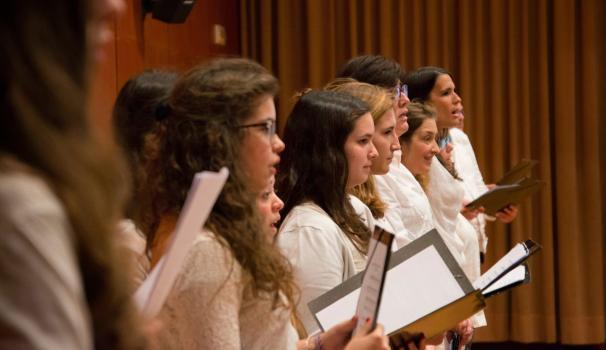
If you like music and want to take part in the concerts of institutional events and festivities, sign up for the Blanquerna Choir. There you will meet new friends and enjoy music.
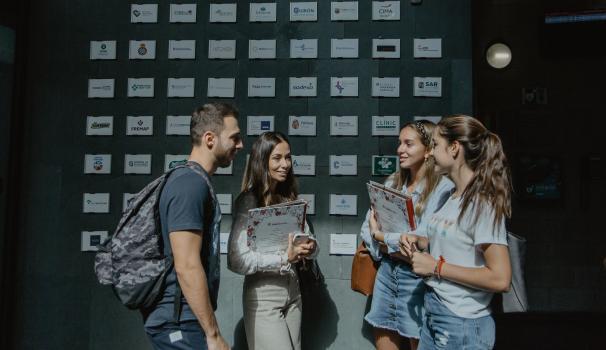
Each class group must elect a representative to put forward concerns or make proposals to the faculty members and academic management. At the same time, each degree must appoint a delegate and each school a representative on the general URL council.
Contact between students and the university is constant and is channeled through the Student Council, the body that collects proposals and requests from students and facilitates university life.

Are you studying a foreign language and want to improve your level? Do it at your own pace in the language self-learning classroom. This service offers various teaching resources and materials to practice the language.

We’re here to listen! Have you experienced or witnessed any situation of harassment? Do you have any questions about Blanquerna’s equality policy? Would you like to make a proposal or suggestion regarding gender issues? Use this Anti-harassment Point: write to us through the channels you’ll find at the bottom of this page.
Juan Pablo Capilla Garcia
Doctor en Comunicació. Professor de la Facultat de Comunicació i Relacions internacionals Blanquerna (URL)
Montserrat Arbós Figueras
Periodista internacional al diari Avui i col·laboradora a El País i Catalunya Ràdio. Especialista en el conflicte entre Israel i Palestina. Professora de la Facultat de Comunicació i Relacions internacionals Blanquerna (URL).
Ester Almenar Taya
Doctora en Comunicació. Professora de la Facultat de Comunicació i Relacions internacionals Blanquerna (URL).
Lluís Anyó Sayol
Eloi Aymerich Casas
Doctor en Comunicació. Director audiovisual i productor executiu en Clack Audiovisual
Valeria Bello
Craig Christopher Collins
Hernán Cortés Saenz
Sergi Cutillas Marquez
Andrea Daza Tapia
Carles Fernandez Torne
Doctor en Relacions internacionals. Professor de Dret Internacional, Geopolítica i Drets humans a la Facultat de Comunicació i Relacions internacionals Blanquerna (URL).
Joan Francesc Fondevila Gascón
Doctor en Comunicació. Professor de la Facultat de Comunicació i Relacions internacionals Blanquerna (URL).
Pere Franch Puig
Miguel Franquet Dos Santos Silva
Doctor en Periodisme. Professor de Teoria de la Comunicació i de Filosofia Política a la Facultat de Comunicació i Relacions internacionals Blanquerna (URL).
Iñigo Macias Aymar
Esperanza Maestro Babío
Dissenyadora gràfica. Coordinadora del departament de disseny i publicacions de la Fundació Blanquerna.
Xavi Martí González
Oscar Mateos Martin
Ramon Millà Bruch
Director audiovisual a la Corporació catalana de ràdio i televisió. Periodista i fotògraf.
Jacobo Ocharan Diez de Artazcoz
Susana Pérez Soler
Jaume Peris Llimona
Director creatiu i soci de NEWNO. Professor de la Facultat de Comunicació i Relacions internacionals Blanquerna (URL).
Alba Sabaté Gauxachs
Marçal Sintes Olivella
Elisa Vivas Soto
Daniel Esparza Olivero
Filòsof i professor. Doctor en Religió per la Universitat de Columbia.
Placid Garcia-Planas Marcet
Periodista i reporter internacional a La Vanguardia. Ha estat enviat a diversos fronts, com el dels Balcans i el de Pròxim Orient. També ha cobert guerres d'afaganistan i Ucraïna. És autor de diversos llibres.
Ricard Gonzalez Samaranch
Periodista. Excorresponsal al Magreb. col·laborador del diari Ara.
Andres Missé Ferran
Periodista llicenciat en Dret i director de la publicació Alternativas Económicas.
José Emilio Morenati Fernández
Fotògraf. Guanyador i finalista de nombrosos premis com el Pulitzer i Fotopress, ha cobert conflictes armats al Pròxim Orient, Afganistan i Paquistan per a l'agència Associated Press per a la qual treballa des de l 2003.
Daniel Hywel Nicholls
Doctor en Ciència Política. Professor de la Facultat de Comunicació i Relacions internacionals Blanquerna (URL).
Gemma Parellada Palau
Gervasio Sanchez Fernandez
Periodista i fotògraf.
University master degrees are official degrees awarded by the Ministry of Education and Vocational Training, in accordance with the requirements of the European Higher Education Area (EHEA) and the guidelines set out in the Bologna Declaration. To access the official master degree, you must hold an official Spanish university degree, or a degree from another country that is part of the European Higher Education Area. Access to master degree studies is regulated by Royal Decree 822/2021, of 28 September.
These studies are also open to students with a degree issued by an education system outside the European Higher Education Area, who do not need to have it approved, provided that the level of training is equivalent to that of an official Spanish degree and that, in the country of origin, the degree gives access to graduate studies. However, admission does not in any case imply the convalidation of the degree or any other type of recognition beyond allowing the student to access master and graduate studies at the University.
Students who have a degree in a field other than Communication Sciences (Audio-visual Communication, Journalism or Advertising and Public Relations) will have to complete a supplementary training module equivalent to between 15 and 60 credits, depending on the original degree.
The application process consists of two parts:
Students can pre-enroll online (by accessing Pre-enrollment | Blanquerna or the pre-enrollment option for each course). You can also pre-enroll in person at the School. During the process, the candidate must submit the required documentation:
There is no charge for this procedure. When the pre-enrollment process has been completed, you will obtain a receipt with pre-enrollment details and a pre-enrollment code (CIB).
When pre-enrollment has been completed, the candidate will be offered a date for an interview with the director and/or coordinator of the master degree, who will assess their suitability and resolve any doubts they may have about the course for which they are enrolling. For the selection of candidates the following will be taken into account:
Once the assessment is complete, the student will be informed of the result of the interview and how to enroll, if admitted. Once admission has been confirmed, the candidate will have to pay €100 as a reservation fee, using the same application via which pre-enrollment was processed. This amount will be considered a reservation fee and will be deducted from the total price of enrollment when it is formalized. Payment is by credit or debit card using a secure, confidential process. The amount paid as a reservation fee will not be refunded under any circumstances, unless the course is canceled.
Students who are admitted can choose between two options, depending on whether or not they already qualify for university admission:
Enrollment is the final step in the procedure to access the master degree. Students will be informed individually of the enrollment date. When enrollment is complete, and the corresponding fee has been paid, the student will have secured a place. Course fees are paid in installments without any interest. When students enrol, they will have two business days to pay 50% of the total cost of the credits for which they have enrolled, by bank transfer or using a barcode at the bank; the remaining 50% is split into nine monthly installments, from October to June, payable by direct debit using the bank account indicated at the time of enrollment.
School alumni are given a 15% discount on the enrollment fee (non-cumulative discount). This discount will only apply to students who enroll full-time for all the credits required in the course. Prices are updated each academic year. Once enrollment is complete, the amount paid will not be refunded under any circumstances.
Students must bring the following documentation with them when they enroll:
When a student enrolls, a contract for the provision of teaching services is formalized between the student and the Blanquerna Foundation, which is legally binding from the time of payment. Payment includes the corresponding insurance and, for students under the age of twenty-eight, compulsory academic insurance. If a student declines to take up a place, he/she will lose in full any amount he/she has paid.
The student accepts the rules for the use of computer services established by the Blanquerna Foundation. The student's personal data will be included in an automated file under the responsibility of the Blanquerna Foundation, so that this contract can be formalized and fulfilled. Students should note that their data may also be used to inform them about the future activities of the Foundation, or for the institution to send them publications. In accordance with the provisions of Organic Law 15/1999 on the protection of personal data, students have the right to access their data to update, rectify or cancel them, or object to their use, by sending a letter, indicating which right they want to exercise.
This section is a summary of the general conditions for enrollment. It is only for guidance and therefore has no contractual value. In the event of any discrepancy, the provisions of the general conditions for enrollment specified in the receipt generated at the time of enrollment will prevail; this receipt formalizes the contract between the student and the Blanquerna Foundation; students can consult it on the intranet whenever they wish.
The School reserves the right to ask candidates with qualifications obtained outside the EHEA for a letter from their university, embassy or consulate to certify that their studies enable them to pursue a master degree or graduate studies. Students are responsible for having all the official documentation necessary for their stay in Spain while studying at the School. Applicants can ask for a pre-acceptance document attached to the pre-enrollment receipt to initiate applications for visas or scholarships or carry out any other administrative procedure. Under no circumstances does this document guarantee a place if all the access and admission requirements are not met. Once applicants have been accepted and enrollment is complete, they can request a letter of admission from the Academic Secretary, if required, by paying the corresponding fee.
For any doubts or queries about the pre-enrollment or enrollment process, please contact the School's Student Information and Orientation Service [email protected]
The final master's thesis is a means of verifying the students' ability to integrate the learning acquired during the master program and examine a topic in greater depth.
The topic can deal with any aspect of international current affairs. In the professional track, the topic must meet the standards of professional journalism: interest, topicality, relevance, good documentation from primary and secondary sources, and a good narrative using any of the languages or supports available in the field of journalism.
If the research track is chosen, the scope is much wider: the thesis can deal with any aspect of the essence and practice of international journalism.
The theme of the thesis must be within one of the areas covered in the course syllabus. For the professional track, the paper must consist of an original informative journalistic product in any format and language, and must be the result of research by the student.
For the research track, the study must involve original academic research, applying scientific method and using the methodology required by research, with a hypothesis, fieldwork and conclusions, presented in a reasoned, coherent way.
The thesis is understood as a project which is evolving, under the guidance of the project supervisor. Based on the idea presented by the student, the content is structured, the final product is prepared and it is defended orally before a panel.
The thesis is monitored by means of regular tutorials with the professor supervising it, including final approval of bibliographic research and data collection, discussing the project with the supervisor and writing the text itself.
The thesis grade is given in a single report, although it is calculated in two parts: assessment of the thesis by the supervisor (40% of the grade) and assessment of the thesis by the panel made up of three members, preferably from the master degree teaching staff, as well as possible external experts (60% of the grade).
Check the procedure for submitting the master's degree thesis here.
External internships at companies and institutions are a key part of the learning process. Through them, students have direct contact with the professional world, in which they will be able to apply the knowledge acquired at university. Internships provide the student with an overview of the communication and operating dynamics of the medium, company, or institution where they are gaining work experience. The School has agreements with upwards of 1,200 companies in which students are prepared to enter the working world.
Based on interviews with students, each academic year we establish new agreements for cooperation with companies and organizations directly related to the professional field of the master degree. The internship will be customized to the characteristics of each student, taking both academic aspects and availability into account.
ANUE · BlueGlobe Media · Corporació Catalana de Mitjans Audiovisuals (CCMA) · La Vanguardia · Reporters Without Borders · Metropolis · SMEX (Beirut) · Amnesty International (Mexico) · ACN Brussels / Paris · Lavínia Brussels · · Vatican Radio · NTN24 Washington
Quality assurance guarantees a learning environment in which program content, learning opportunities, and services and facilities meet established standards.
As the European Union points out, gender equality is not only a matter of social justice but also affects the results of teaching and research. Promoting gender equality in research and innovation is one of the European Commission's commitments, and it supports the explicit integration of a gender perspective in Horizon 2020 projects. However, this recommendation is often poorly understood and misapplied. Various documents are presented here with a view to contributing to a better understanding and application of the gender perspective in teaching and research.
We equip you for change







